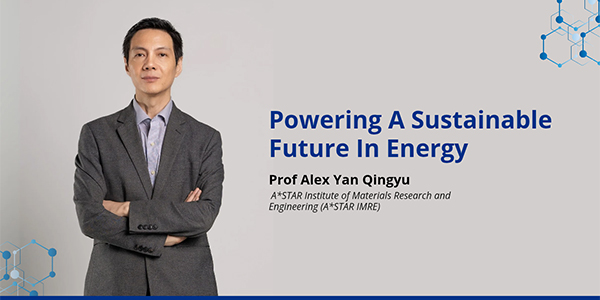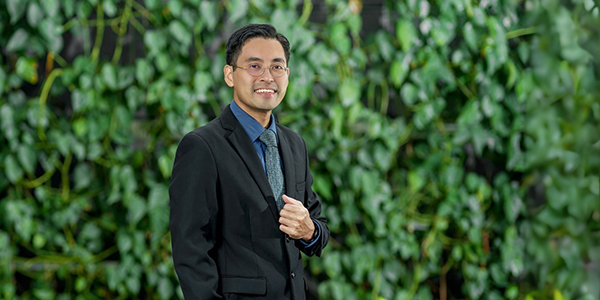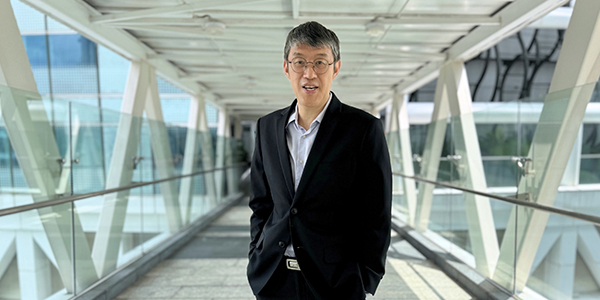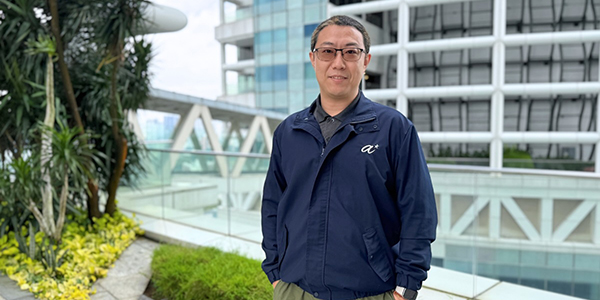FACES OF A*STAR
Going Viral With Infectious Diseases Research
While the height of the COVID-19 pandemic may be behind us, it is critical to remain vigilant and prepared.
Scientists from the A*STAR Infectious Diseases Labs (A*STAR ID Labs) are actively researching and developing new and effective technologies for the detection and prevention of, or intervention in emerging pathogens for better health outcomes.
Contributing to A*STAR ID Labs’ vision of leading the global fight against Infectious Diseases to protect lives and society is none other than Dr Marco Vignuzzi, Senior Principal Investigator, who leads the Anti-Viral Therapeutics Lab.
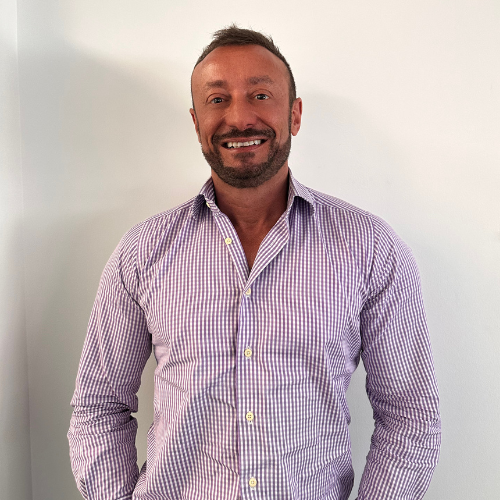 Dr Marco Vignuzzi, Senior Principal Investigator, A*STAR ID Labs
Dr Marco Vignuzzi, Senior Principal Investigator, A*STAR ID Labs
A world-leading virologist, Dr Vignuzzi has travelled across the globe in his pursuit of science. Here,Dr Vignuzzi is assembling a research community around his expertise on predictive computational biology and experimental evolution to prepare for future outbreaks, with the aim to develop novel RNA therapeutics that can respond to new viral threats.
In this feature, Dr Vigunzzi shares about his personal interest in virology research as well as his vision for the Anti-Viral Therapeutics Lab.
Questions
1. What ignited your interest in the field of virology?
My interest in virology happened sequentially. From learning how viruses like HIV could devastate lives at age 12, to honing my love for biology by spending my days in the wilderness just taking field notes of the animals that lived around me—I eventually discovered that I could pursue science as a career and took my first course in virology in university.
I realised that I could use my love for science to help and serve the community—by understanding how to combat viral diseases that would create inequalities in society—that sparked my dive into pandemic preparedness.
2. How has your research into zoonotic diseases evolved—since you were a budding scientist to now running your own lab?
When I first began my career in the lab, RNA viruses were not as relevant—most virologists were studying DNA viruses and flu was significant, however we had not seen a major pandemic since 1968. Over the years, as I did my master’s degree and PhD in the Flu Lab at the Institut Pasteur in Paris, more avid discussions on viruses such as those causing vector-borne disease emerged.
Today, things have evolved and there is no longer a need for me to explain virology or pandemic preparedness as the importance of A*STAR ID Labs’ work is widely recognised, and more scientists are joining our efforts.
3. What is your vision for your lab this year?
This year, my main focus is on establishing and expanding my lab in Singapore while also building strong connections with my international network. The goal is to foster collaboration and knowledge exchange between Singapore and other countries.
I hope these efforts will help put Singapore on the map as a leader in infectious diseases research. Over the next decade, I hope to consolidate all the different ideas I’ve had during my journey in science and push out one combined approach to predict and prevent future outbreaks. This will be just one of many approaches being developed around the world, but I hope it becomes a part of my legacy—one with a unique Singaporean signature, a local flavor, like everything else in our curious little nation with a big punch.
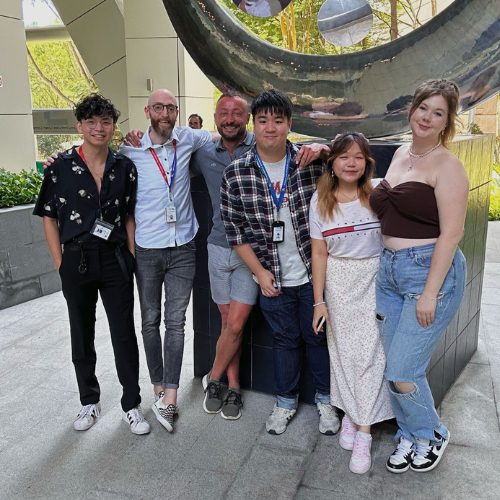 The Anti-Viral Therapeutics Lab. From L-R: Dinh Tran, Fadi Alnaji, Dr Marco
Vignuzzi. Daryl Aw, Rebekah Chan and Molly Watling
The Anti-Viral Therapeutics Lab. From L-R: Dinh Tran, Fadi Alnaji, Dr Marco
Vignuzzi. Daryl Aw, Rebekah Chan and Molly Watling
4. How has COVID-19 changed the way you study zoonotic diseases?
COVID-19 did not surprise me, as I had long been a part of the small group of researchers studying virology and writing about the impact of pandemics like the Spanish flu as well as how the next big one was on its way. For instance, the Spanish flu came in multiple waves over three years and lingered for many years after that—COVID-19 followed a similar pattern.
Throughout the years, my lab has been actively responding to numerous outbreaks such as two chikungunya pandemics that infected millions across continents, the Zika pandemic, the swine Flu pandemic, and even the Ebola outbreaks across parts of Africa.
Interestingly, the COVID-19 pandemic has brought about a positive change where, for the first time, scientists across the globe set aside their differences and worked together on COVID-19 research.
5. What advice do you have for younger scientists, who would like to pursue a career in virology?
Just do it! Viruses are the coolest things and there is always more to be discovered. Personally, it was more than a passion—more like a vocation—and there was nothing more in the world that I wanted.
6. What fascinates you the most about Singapore?
Everything about Singapore fascinates me. It’s a place that’s home to people from all walks of life, including me. I feel like I’ve become Singapore’s biggest cheerleader. Go Little Red Dot!
Was this article helpful?
A*STAR celebrates International Women's Day

From groundbreaking discoveries to cutting-edge research, our researchers are empowering the next generation of female science, technology, engineering and mathematics (STEM) leaders.
Get inspired by our #WomeninSTEM

